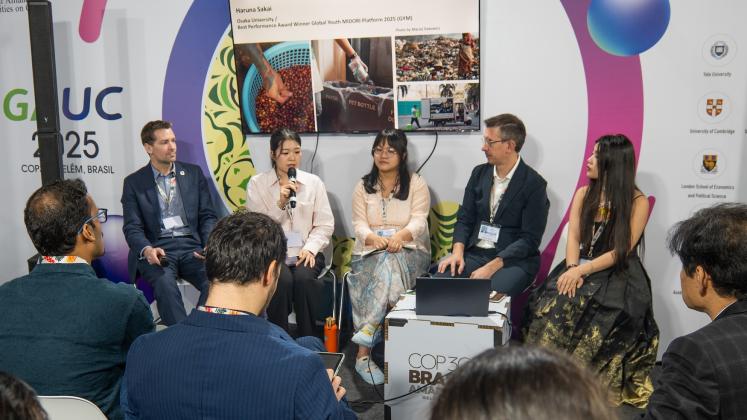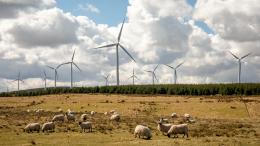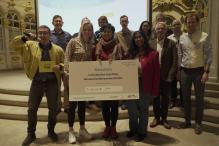A UNU-IAS side event at the 2025 UN Climate Change Conference (UNFCCC COP30) in Belém, Brazil highlighted the institute’s approach to drive synergies across biodiversity, climate and culture through integrated education, research and youth empowerment initiatives. Held on 17 November 2025, the event brought together UNU-IAS researchers, alumni and two youth participants of the institute’s Global Youth MIDORI platform (GYM) — a capacity development initiative empowering youth to develop solutions for local and global sustainability challenges. The event was co-organized with the Global Alliance of Universities on Climate (GAUC).
A panel discussion addressed capacity gaps and barriers that are impeding solutions in policymaking and local sustainability action. A winner of the 2025 GYM speech contest, Haruna Sakai (student, Osaka University), reflected on how the training had enhanced her understanding of links between challenges in waste management, child labor and climate change. She identified critical gaps including the difficulties of integrating sustainability education into national and local agendas in South East Asia. Ms. Sakai stressed the need to financially support sustainability education programmes beyond formal education, and to support young sustainability entrepreneurs.
Vennessa Kuek (student, Universiti Malaya), another winner of the 2025 GYM speech contest, shared insights from her work on sponge city initiatives. She identified key barriers to youth engagement in sustainability policymaking, including the lack of institutional support and awareness of youth participation, as well as insufficient job security and safety nets — particularly for women to safely pursue careers in sustainability. To close such gaps, more support is needed to sustain the momentum of youth-led initiatives, build capacity and foster critical thinking.
Juan Pastor-Ivars (Research Fellow and Academic Associate, UNU-IAS) introduced the activities of the UNU-IAS Operating Unit Ishikawa / Kanazawa (OUIK), including its Sustainable Urban Nature (SUN) project and a youth empowerment programme that engages high school students. He explained how OUIK was addressing cross-cutting sustainability challenges and their links with local culture, and connecting local voices to global policy discourse — including through the UNEP #GenerationRestoration initiative in collaboration with Kanazawa City. Dr. Pastor-Ivars emphasized the importance of international collaboration in scaling up grassroots actions and building momentum.
Danfeng Zhu (Youth Delegate, GAUC) highlighted research challenges including difficulties in accessing environmental and climate data, and participating in policy processes. She also addressed the need for more cross-disciplinary collaboration between youth and introduced the approach of GAUC to deliver training and implement projects in partnerships with 15 universities.
The discussion, moderated by Nicholas Turner (Strategy & Knowledge Management Specialist, UNU-IAS), identified key factors of success to address these capacity gaps. These include long-term commitment to build local trust, continuity of projects to prevent fragmentation, investment in outreach to maximize student participation and empowering youth to lead projects.



